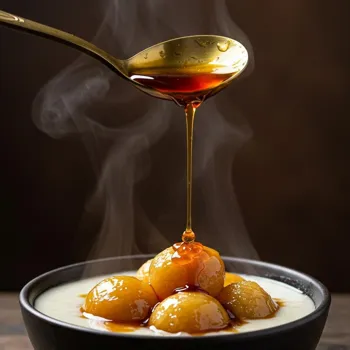Delve into the fascinating world of food cravings and taste science. Explore why we yearn for specific foods. Read more!
Namaste, readers! Ever wondered why your hand reaches for that jalebi after a long
day, or why you simply need a plate of hot idlis with sambar on a Sunday morning? It's not just about satisfying hunger; there's a fascinating science behind our food cravings.
It's a complex interplay of biology, psychology, and even our cultural upbringing that shapes our taste preferences and dictates which foods we yearn for. Let's dive into the delicious details of why we crave what we crave, shall we?
Taste buds detect basic tastes; flavor is taste, smell, texture combo
Our taste buds are the first line of sensory defense! These tiny receptors, located primarily on our tongue, are responsible for detecting five basic tastes: sweet, sour, salty, bitter and umami (that savory, meaty flavour).
When we eat something, the molecules in food bind to these receptors, sending signals to the brain. The brain then interprets these signals to identify the taste. But taste isn't the whole story, is it?
Flavour, that thing that makes food truly enjoyable, is a combination of taste, smell, and texture. It's the aroma of freshly baked roti, the crunch of a perfectly crisp dosa, and the smooth tanginess of curd that all contribute to the overall sensory experience, influencing our cravings.
Certain foods affect mood by triggering serotonin release, explaining emotional eating
Think about that time you were feeling low and reached for a bowl of gajar ka halwa. Did it really just satisfy your sweet tooth, or was something more going on? Turns out, food can have a direct impact on our mood!
Certain foods, particularly those high in carbohydrates, can trigger the release of serotonin, a neurotransmitter that contributes to feelings of happiness and well-being. This is why we often crave comfort foods when we're stressed or sad.
It's our body's way of trying to regulate our mood and find some solace in the familiar and pleasurable sensations of eating.
Cravings tied to memories evoke emotions and connect us to the past
Our cravings are also deeply rooted in our memories and experiences. Think about that special mithai your grandmother used to make for Diwali, or the flavour of the chai your mother brewed on a cold winter morning.
These foods aren't just sustenance; they're tied to powerful emotions and nostalgic moments. These associations can create strong cravings, especially during times of stress or when we're feeling homesick. Food becomes a way to connect with our past, evoke cherished memories.
This is why regional cuisines play a big role in our life.
Our bodies signal nutrient deficiencies through food cravings
Our bodies are incredibly smart and well-adjusted machines. When we're deficient in certain nutrients, our bodies will often signal us to crave foods that contain those vital components.
For example, a craving for something salty might indicate a need for sodium, especially after heavy exercise when we lose electrolytes through sweat. Similarly, a craving for greens, like palak paneer, or other leafy vegetables might point to a need for vitamins or minerals, like iron or calcium.
Listening to these signals can be a helpful way to ensure we're meeting our nutritional requirements. So next time you have a peculiar craving, consider what your body might be trying to tell you.
Differentiate cravings for mindful eating and healthy habits
It's important to remember that not all cravings are created equal. Differentiating between normal appetite and obsessive desire is critical.

While indulging in our favourite gulab jamuns once in a while is perfectly fine, allowing cravings to control our dietary habits can lead to unhealthy eating patterns and potential health problems.
Mindful eating practices, such as paying attention to our hunger cues and savouring each bite, can help us better understand and manage our cravings.
The key is to find a balance between satisfying our desires and nourishing our bodies in a healthy way, understanding that cravings are a natural part of the human experience but should be approached with awareness and moderation. Remember the science, keep a balanced view and eat healthily!














